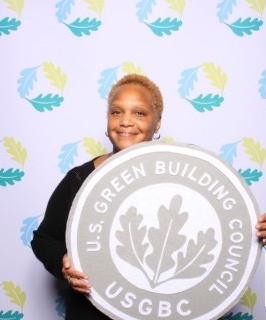
Follow Up: Special Florida Food Forum
Food Insecurity and Food Justice
If you were unable to attend the meeting, the full presentation is available online here.
To keep the conversation going, please visit our forum on Food Insecurity and Food Justice here to add your thoughts and comments.
On July 17th, the special edition of the Florida Food Forum on Food Insecurity and Food Justice was led by FLFPC Board member Dell deChant.
During the forum, Dell hosted an interactive discussion with three panelists who shared their knowledge and experience with these topics: Will Schanbacher, Assistant Professor of Religious Studies at the University of South Florida, Arianne Corbett, President of Leading Health, LLC, and Erica Hall, Senior Legal Professional at Johnson Pope Bokor Ruppel & Burns, LLP.
The forum began with a presentation from each panelist on how they interact with food insecurity and food justice, as well as policy recommendations to address gaps in these areas.
The first presenter was Will Schanbacher who addressed the topic by focusing on a path towards achieving food insecurity and food justice.
Will began with the “Tale of Two Pandemics” where we are seeing structural racism and an unjust food system come to light.
He explained how the effects of COVID-19 have struck our world’s most vulnerable populations and how our communities of color have been negatively impacted by COVID-19, and that concurrently, our food security systems have been negatively affected and will continue to be in the pandemic’s aftermath.
“Feeding Tampa Bay, for example, here locally has between 650,000-1.7 million families in need since the onset of COVID-19.”
Will pointed out how the apparent destruction from the pandemic is not new, merely a manifestation of an underlying issue of food security, namely in populations of people of color which has existed long before the pandemic began.
“Again locally, Feeding Tampa Bay has shown in our backyards, early evidence that food insecurity is rising among Black and Latino communities. And the medium-term economic impacts on food insecurity will be felt. They already are here, as we can see in our grocery stores…Policymakers and officials are already seeing evidence that we are going to see some of the same affects that happened during the financial crisis. And we see that like the recession, in 2008 and 2009, this will likely negatively impact black and Hispanic populations more so.”
In the midst of this crisis, Will describes the work that many organizations are doing toward making substantive changes in the food system through job training programs, re-imagining how to incorporate healthier foods in food assistance programs, and promoting strategies to mitigate food insecurity through changes in how we understand the food system, including raising awareness and lobbying congress to fund anti-hunger campaigns.
“Food insecurity efforts that we have here locally are excellent, but we also need to move beyond that. We need to incorporate perhaps more radical strategies.”
Will suggests the concept of Food Sovereignty as a possible way forward, as it seeks to revitalize the cultural importance of food and feeding people.
“As we move towards Food Sovereignty, we see that it is a combination of food sovereignty, anti-racist efforts, and ultimately food justice. So, we can only accomplish these things through a holistic and fully systemic and structural address of these issues.”
Will concluded his presentation with a number of suggestions for moving forward through social action, participation in transformational programs, stronger connections to food through growing at home and increased participation of religious leaders.
The next speaker was Arianne Corbett who spoke about food insecurity and food justice as it relates to children in Florida.
“In Florida, and across the country, child food insecurity has been decreasing since the Great Recession. But in Florida we rank 11th in the country in child food insecurity,” Arianne said. “It’s really a critical period to think about nutrition and think about food insecurity because we know that kids who have inadequate nutrition are permanently impacted in their learning; their test scores are lower, their social interactions are impacted, their behaviors, moods and productivity are impacted now and throughout their life.”
Arianne explained that even before the pandemic, data showed that food insecurity rates in communities of color including Black, Hispanic, and Native American households were at least twice that of non-Hispanic White households. And that food insecurity tracts very closely with poverty and unemployment.
“The COVID crisis has disrupted our lives in ways that we could not have imagined, but none more so than for low-income working families with children. Unemployment has spiked sharply, families have experienced income losses and increased economic hardship…Feeding Florida estimates that unemployment in the state of Florida could be as much as 35 percent, and given our reliance on tourism and our service industry, it’s very likely that scenario could play out. As a nation, we are estimating that we could see the number of children in food insecure households increase by 7 million.”
Efforts to step up and fill these gaps are very noticeable. Food banks and food pantries have massive lines, school meal programs that have set up enormous operations to provide food through drive-throughs, school bus routes and even delivery to homes, and outside organizations have stepped up to provide resources to make this happen.
One of the organizations Arianne illustrates is No Kid Hungry, which is a non-profit based out of DC that is working to end child hunger by connecting schools and communities or helping them better utilize federal nutrition programs such as school breakfast, afterschool meals, and summer feeding programs. With the pandemic, she notes how they have had to make a quick pivot to funding emergency feeding operations to fill the gaps in communities.
Another important local program that Arianne describes is the Tampa Bay Network to End Hunger, which created an innovative new Meals-on-Wheels program for kids, where they deliver meals directly to houses, and which helps support mobile food pantries, farm to community distribution and funding for school programs.
“Even though we are doing so much with these programs, there are still big challenges.” To combat these challenges short- and long-term policies are needed.
Flexibility granted by the local and federal government on who, where and when people can pick up school meals has been one of the most helpful things according to Arianne. What this has required, however, is a great amount of advocacy at the federal level.
Another strategy and policy that has been crucial is the implementation of the Pandemic Electronic Benefits Transfer (P-EBT) program, which provides each family of a child who is receiving free or reduced school meals with an EBT card with daily benefits that they would have received through the meal program at school.
As for long-term sustainable policies, Arianne describes how the SNAP program is one of the most effective ways to fight child hunger and at the same time is an economic driver.
“For every $1 spent in SNAP benefits, it generates $1.50 to $1.80 in economic activity in the community,” she notes.
“What we are asking is that in Congress, for any next COVID recovery package, is it needs to increase the maximum SNAP benefit by at least 15%, increase the minimum SNAP benefit from $16 to $30 per month and extend the Pandemic EBT through the end of the next school year.”
Going forward, Arianne said that the best ways for Floridians to take action is to contact their local legislators and share what food insecurity looks like in their community, find key allies and leaders to help make this case, and build relationships to widen available resources on food insecurity.
From there, Erica Hall continued the conversation by discussing what she sees as major challenges to resolving food insecurity and making a more just food system.
Understanding what food insecurity and food justice means is key. “Healthy People defines Food Insecurity as the ‘disruption of food intake or eating patterns because of lack of money and other available financial resources for food at the household level.’ It is also defined as the state of being without reliable access to a sufficient quantity of affordable, nutritious food,” Erica explained. “It’s not just having lack of money, but also the lack of transportation and lack of access to reach those anchors and grocery stores to have access to that food.”
“Food Justice on the other hand is a holistic and structural view of the food system that sees healthy food as a human right and addresses structural barriers to that right. That could be in the form of exercising your right to grow food, sell and eat healthy food. So the food justice movement works not only for access to healthy food for all, but also examines the structural roots of these disparities, and works for racial and economic justice, too.”
Erica addressed the three main aspects of food justice as the access to healthy, locally grown, fresh and culturally appropriate food, living wage jobs for all food system workers, and community control through cooperatives, faith-based initiatives and community organizations.
When it comes to major challenges to resolving food insecurity, Erica noted that communities of color remain on the frontlines of fighting two public health crises simultaneously and that the global pandemic and systemic racism are a threat to livelihood and safety on a day-by-day basis. Moreover, low-income families are affected by multiple overlapping issues such as lack of affordable housing, health problems, high medical costs and low wages.
“Food justice efforts work not only for access to healthy food, but for an end to the structural inequities that have led to unequal health outcomes; and that’s what currently makes the food system unjust in my opinion.”
Going forward, there are a number of ways to make a difference. One way is to create change is for individuals to think about their personal and professional partnerships, collaborations, and friendships and by growing their “circle” while engaging in dialogue. By expanding networks, this can increase one’s opportunities, whether it be financial or in other ways.
“Policy is key to creating sustainability and success,” Erica said. “That is what is needed is to improve food security and food justice.” Providing better access to grant and loans to projects seeking to improve access to healthy foods through programs such as the Healthy Food Financing Initiative (HFFI) is one example Erica gives, as well as creating and funding innovative public-private partnerships that spark economic development and improve health.
Erica said that citizens can get more involved by volunteering and making their voices heard by joining groups like the Florida Food Policy Council and by becoming leaders in their community.
With the conclusion of the presentations, the forum opened up for a lively question and answer session. Attendees were left with a greater understanding of the current challenges and strategies that can be used to combat food insecurity and increase food justice.

Host Bio: Dell deChant is Board Member of the Florida Food Policy Council, Associate Chair of the Department of Religious Studies at the University of South Florida, author of four books and numerous articles. Research foci: Agrarianism and Food Sovereignty. He is Chair of the New Port Richey Environmental Committee and Convener of the USF Food Sovereignty Group.
Panelist Information:
 Will Schanbacher is Assistant Professor of Religious Studies at the University of South Florida. His research interests concentrate on religious and social ethics with a focus on the global food system and globalization and poverty. He is the author of The Human Right to Food: Combatting Global Hunger and Forging a Path to Food Sovereignty (Prager, 2019), The Politics of Food: The Global Conflict between Food Security and Food Sovereignty(Praeger, 2010), an editor of The Global Food System: Issues and Solutions, Ed. (Praeger, 2014). He is currently working with local religious organizations on projects to build gardens in the Tampa area. His forthcoming book, “Food Insecurity: A Reference Handbook (ABC-CLIO, forthcoming, 2022) addresses the history of food insecurity in the United States. He is the director of the department’s Global Citizen Project and member of the steering committee for USF’s Urban Food Sovereignty Policy Group.
Will Schanbacher is Assistant Professor of Religious Studies at the University of South Florida. His research interests concentrate on religious and social ethics with a focus on the global food system and globalization and poverty. He is the author of The Human Right to Food: Combatting Global Hunger and Forging a Path to Food Sovereignty (Prager, 2019), The Politics of Food: The Global Conflict between Food Security and Food Sovereignty(Praeger, 2010), an editor of The Global Food System: Issues and Solutions, Ed. (Praeger, 2014). He is currently working with local religious organizations on projects to build gardens in the Tampa area. His forthcoming book, “Food Insecurity: A Reference Handbook (ABC-CLIO, forthcoming, 2022) addresses the history of food insecurity in the United States. He is the director of the department’s Global Citizen Project and member of the steering committee for USF’s Urban Food Sovereignty Policy Group.

Arianne Corbett, R.D., is President of Leading Health, LLC with more than a decade of experience in food and nutrition policy, health promotion and advocacy. As a consultant, Arianne works primarily on efforts to improve children’s access to healthy, high-quality food in schools and early care and education settings. For the past five years, Arianne has supported Share Our Strength’s No Kid Hungry campaign in the Tampa Bay region. Prior to forming her consulting company, she managed public health and nutrition advocacy efforts for the Center for Science in the Public Interest and School Nutrition Association. Arianne is a Registered Dietitian and holds a Bachelor of Science in Food Science and Human Nutrition from the University of Florida.

Erica Hall, M.S. CED, MBA, ARM, has an extensive background as a community organizer, advocate, trainer, Board member, and Senior Legal Professional who has worked extensively in urban agriculture and food policy. Erica is active in the US Green Building Council (USGBC), American Planning Association, and other environmental, neighborhood revitalization groups throughout the DC area working in youth development, Black Farmers, food insecurity, workforce training, historic preservation, and urban agriculture in DC, VA, MD, NYC, Atlanta and Los Angeles working in youth development, Black Farmers, food insecurity, workforce training, historic preservation, and urban agriculture. She previously chaired a DC non-profit, Healthy Solutions, that worked with Community Gardens, Brownfield Remediation, food insecurity, and urban agriculture. Erica previously served on the Board of Directors of Groundwork Anacostia River DC, a local non-profit that utilizes environmental restoration goals as a vehicle for community development. Erica is also a Senior Fellow of the Environmental Leadership Program, a dynamic network of 900 of the country’s top emerging environmental and social change leaders. Erica was also selected as co-chair of the Host Committee for Greenbuild, the world’s largest conference and expo dedicated to Green Building. Since 2011, she has been a Grant Reviewer for the USDA National Institute of Food & Agriculture's Community Food Projects Competitive Grant Program which funds projects designed to meet the needs of low-income individuals and increase community self-reliance concerning food and nutrition. As a member of the Ad Hoc Committee of the Enoch Davis/St. Pete Youth Farm, Erica helped to define the mission statement for the project, helped guide project direction, while producing some broad actions needed to implement the project. Through this program, youth are empowered to lead urban agriculture projects under community guidance and resources has proven to be a successful strategy in youth, workforce, and neighborhood development.
The Florida Food Forum is a free event made available to the public. To support our work, please consider becoming a member or making a donation.
For questions or more information, contact us at: info@flfpc.org
Disclaimer: The views of the speakers do not represent the views of the Florida Food Policy Council. We are a forum for the offering and sharing of information and encourage diversity and communication within the food system.